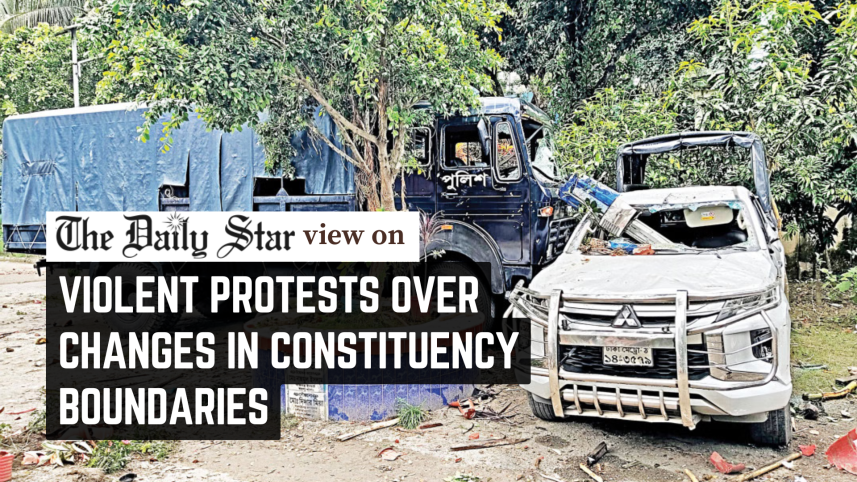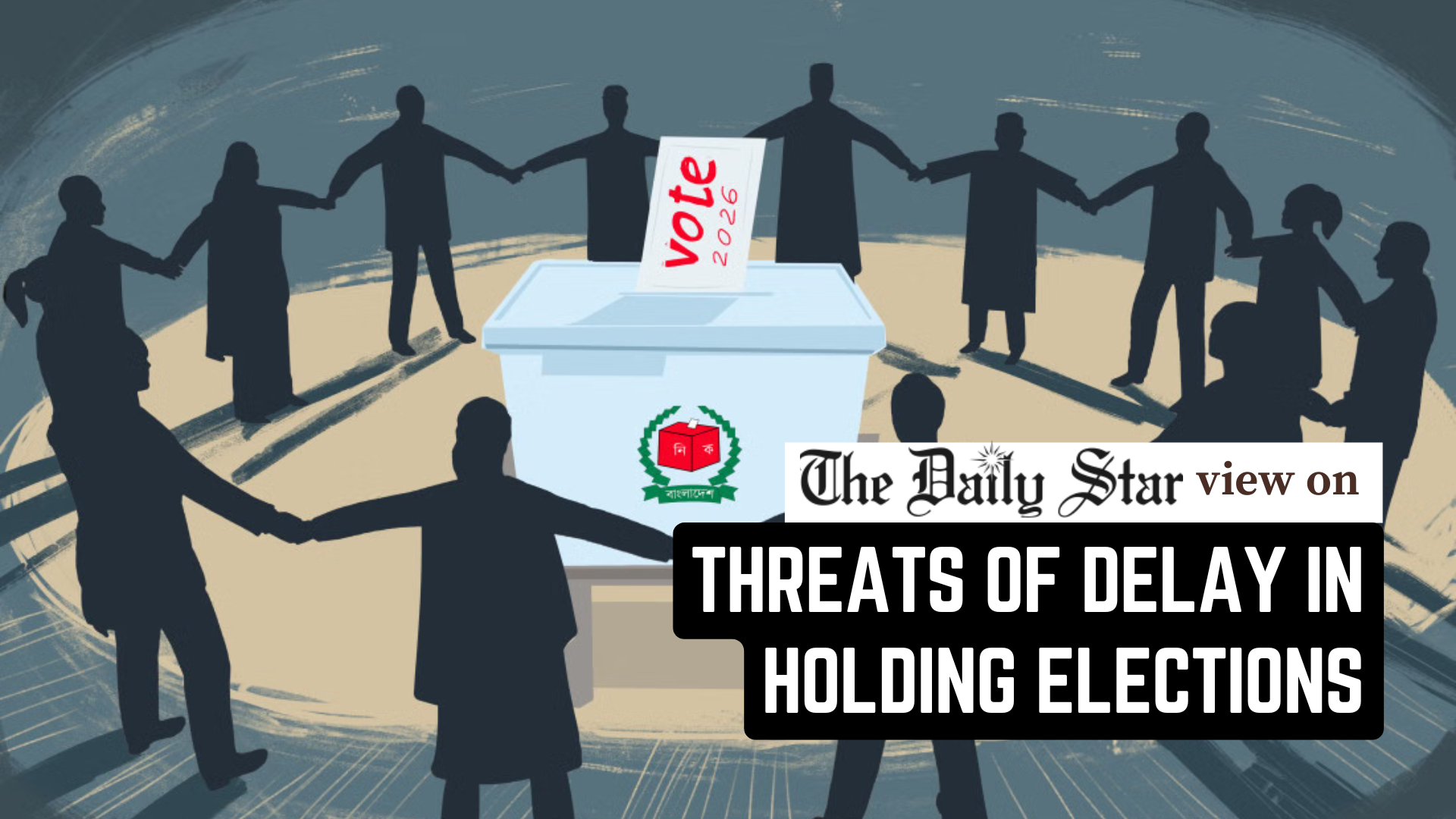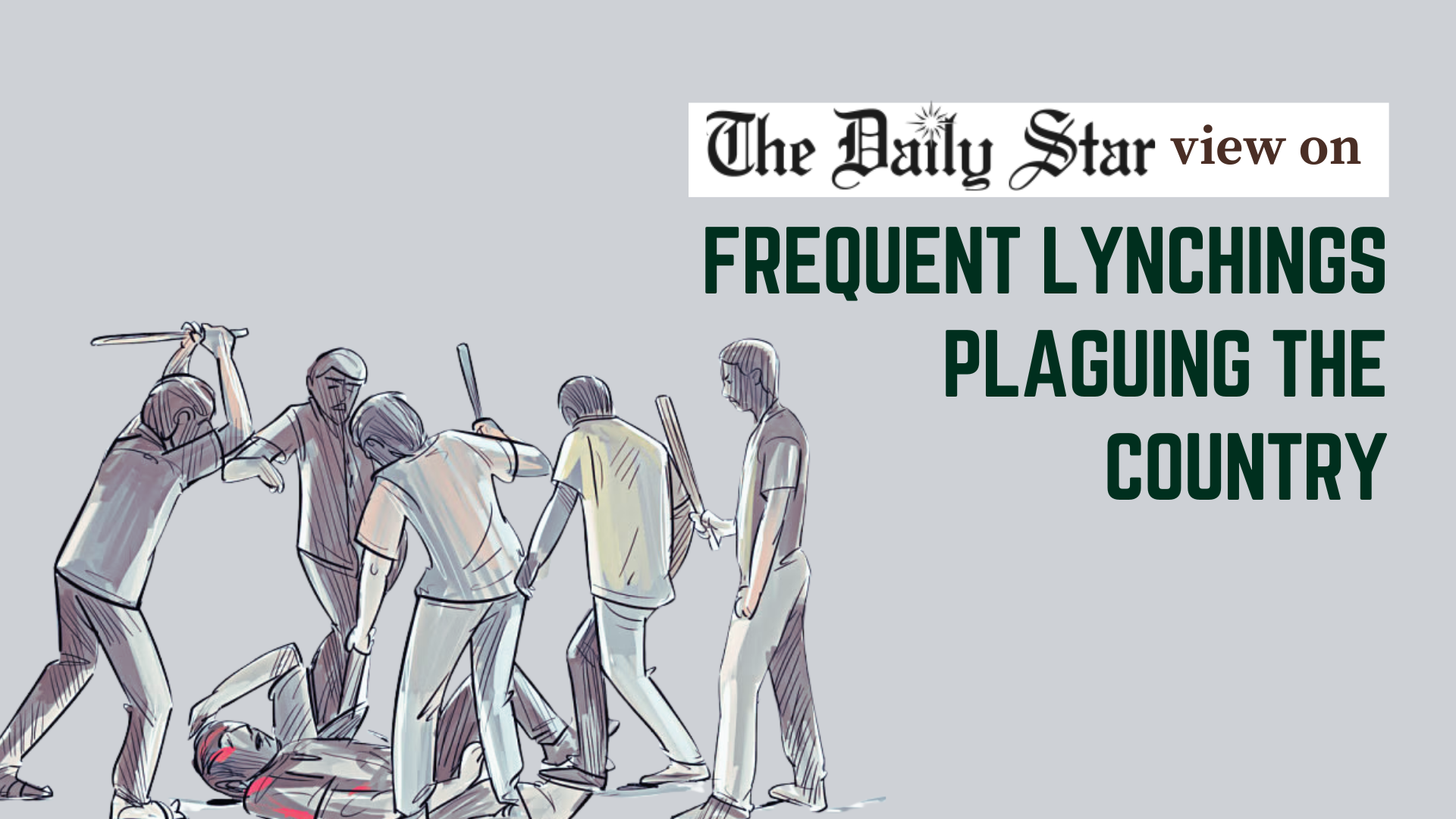Stop the chaos over constituency re-drawing

The ongoing unrest surrounding the Election Commission's constituency boundary changes sends a worrying signal not just about the unchecked deterioration of law and order but also about the prospects for a smooth lead-up to the February election in today's charged atmosphere. On September 4, the EC issued a gazette notification redrawing the boundaries of 46 constituencies across the country. Since then, protests, blockades, and clashes have erupted in several districts, including Bhanga in Faridpur, Bagerhat, and Bera in Pabna. Putting aside the more contentious, RPO-related developments, if even technical matters such as this one can trigger violent outbursts, what hope is there of maintaining peace during the election itself?
On September 4, the EC issued a gazette notification redrawing the boundaries of 46 constituencies across the country. Since then, protests, blockades, and clashes have erupted in several districts, including Bhanga in Faridpur, Bagerhat, and Bera in Pabna. Putting aside the more contentious, RPO-related developments, if even technical matters such as this one can trigger violent outbursts, what hope is there of maintaining peace during the election itself?
Bhanga upazila has particularly emerged as an epicentre of the trouble brewing over constituency re-demarcation. Opposing the EC's decision to transfer Algi and Hamirdi unions from Faridpur-4 to Faridpur-2, protesters on Monday stormed and vandalised the Bhanga Upazila Parishad complex, Bhanga Police Station, and several other government offices, torching 11 motorcycles and damaging at least five police vehicles. The unrest also left highways connecting 21 southern districts nearly paralysed. Eyewitnesses said over a thousand people, mostly young, took part in the violence, many with their faces covered and some wearing helmets and carrying sticks and machetes. It was a total mayhem, with police officials trying to control the situation forced to take shelter inside a mosque at one point.
While no major disturbance was reported in Bhanga on Tuesday, the possibility of renewed violence remains. Meanwhile, in Bagerhat, the reduction of four parliamentary seats to three prompted marches, sit-ins, and a continuing siege of the district EC office, with two petitions also filed in High Court demanding restoration of the previous constituencies. In Pabna's Bera, protesters on Sunday enforced a hartal and blockade of both road and river routes. This was the latest in a series of protests since the EC designated Santhia as the sole area under Pabna-1 while merging Bera and Sujanagar into Pabna-2. These protests, causing significant disruptions to public life, may continue unless the disputes are resolved.
This issue, we must say, is as much political as it is administrative. While the political appeal for a return to the pre-2008 constituency structure may seem convincing in certain cases, the manner in which local political actors mobilised and provoked violence to press their demands is totally unacceptable. In this regard, we may recall BNP's reported stance to refrain from protests, demonstrations, and blockades opposing the EC's final gazette, but local BNP units, among other parties, have been heavily involved in some of the incidents, raising doubt about the party's commitment or control over grassroots leaders. We urge political parties to strictly enforce discipline so that any grievance is expressed only through lawful means.
At the same time, the EC must try harder to resolve the disputes through better engagement with the aggrieved parties. While electoral boundary changes are normal given the changes in population and other administrative considerations, the commission must be open to revising them so that any adjustments are understood and accepted by local stakeholders. But under no circumstances can violence be tolerated.
 For all latest news, follow The Daily Star's Google News channel.
For all latest news, follow The Daily Star's Google News channel. 

Comments